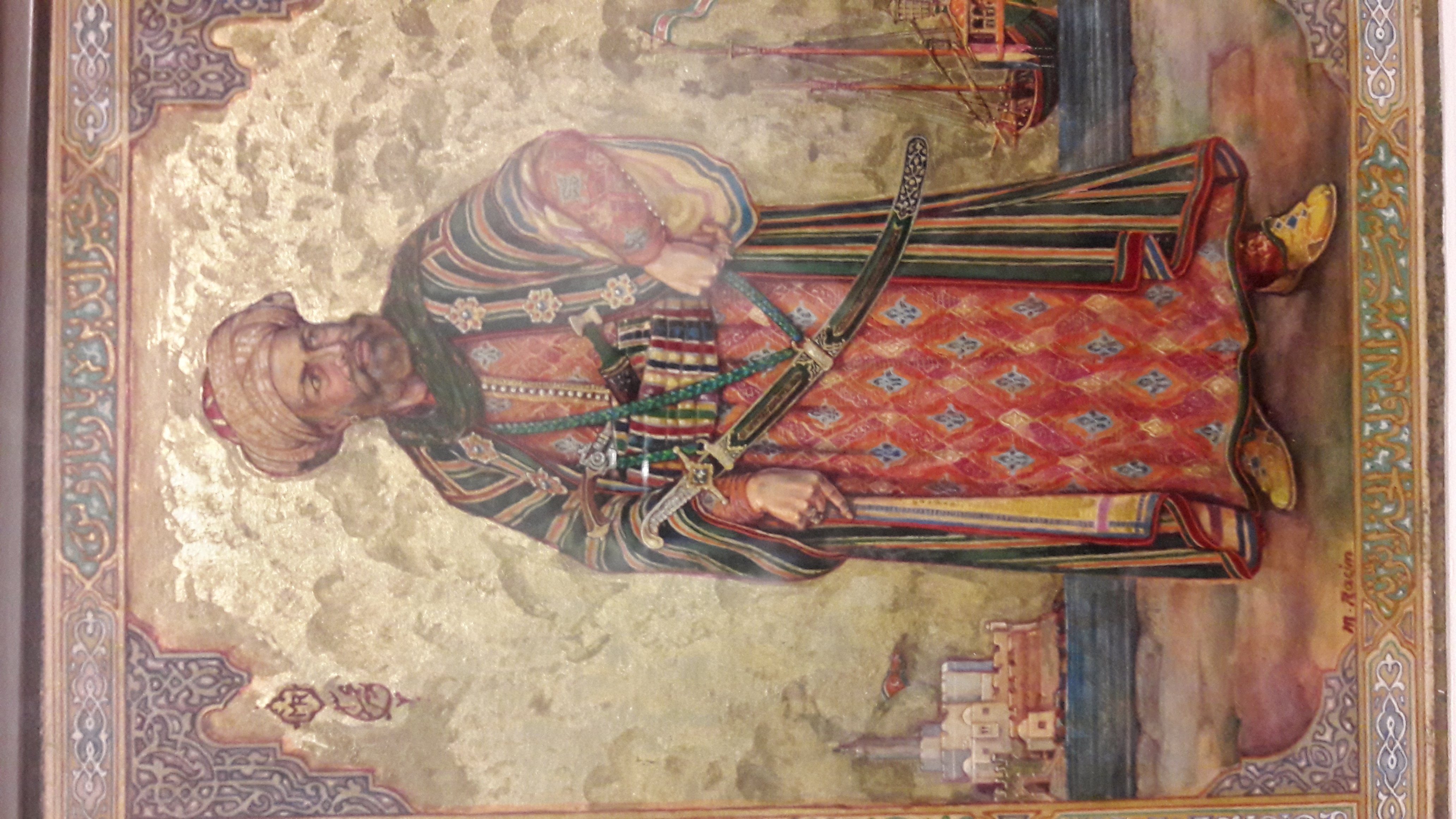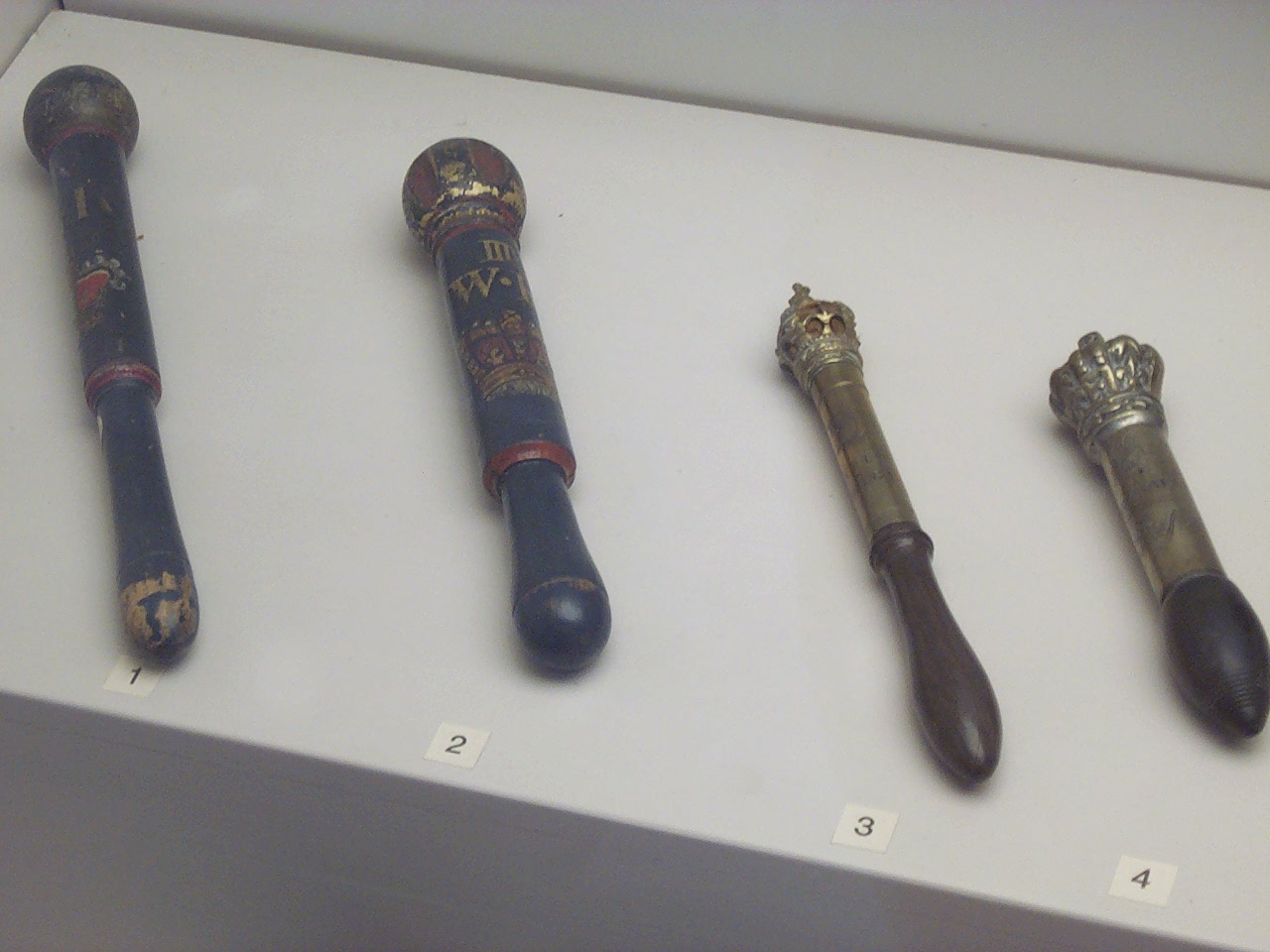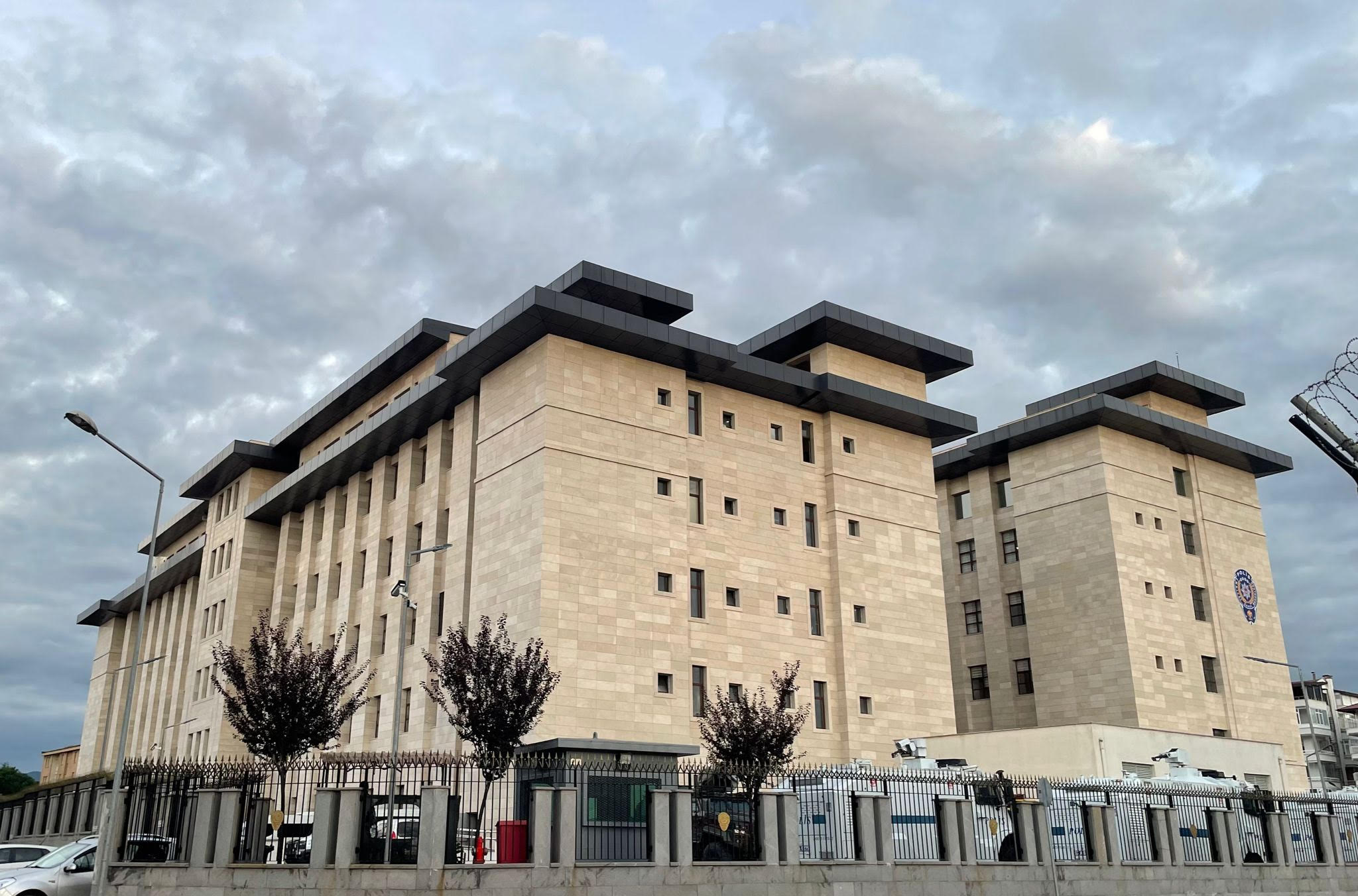|
Municipal Police (Turkey)
Municipal police () is a law enforcement body responsible for ensuring the implementation and control of public services in different municipalities in Turkey. The police officers also use their powers as traffic police in metropolitan municipalities. History The origin of the law enforcement organization in Turkey is based on the ''ihtisab'' system that has an important place in the Turkish tradition and Islamic culture, based on which the first office for public regularity was created. During the time of the Ottoman Empire, services related to the cities were carried out by different institutions and individuals such as the Grand Vizier, Agha of the Janissaries, secretariats, kadis, soubashis, Kapudan Pasha, the Djebedji, and seraskers. Among these institutions, the closest duties to today's municipal police were carried out by the '' kadi''s or judges. A clergyman responsible for enforcement and executions was assigned to each judge. The judges, together with their office ... [...More Info...] [...Related Items...] OR: [Wikipedia] [Google] [Baidu] |
Municipalities
A municipality is usually a single administrative division having municipal corporation, corporate status and powers of self-government or jurisdiction as granted by national and regional laws to which it is subordinate. The term ''municipality'' may also mean the governing body of a given municipality. A municipality is a general-purpose administrative subdivision, as opposed to a special district (United States), special-purpose district. The English language, English word is derived from French language, French , which in turn derives from the Latin language, Latin , based on the word for social contract (), referring originally to the Latin communities that supplied Rome with troops in exchange for their own incorporation into the Roman state (granting Roman citizenship to the inhabitants) while permitting the communities to retain their own local governments (a limited autonomy). A municipality can be any political jurisdiction (area), jurisdiction, from a sovereign state s ... [...More Info...] [...Related Items...] OR: [Wikipedia] [Google] [Baidu] |
Kapudan Pasha
The Kapudan Pasha (, modern Turkish: ), also known as the (, modern: , "Captain of the Sea") was the grand admiral of the Ottoman Navy. Typically, he was based at Galata and Gallipoli during the winter and charged with annual sailings during the summer months. The title of ''Kapudan Pasha'' itself is only attested from 1567 onwards; earlier designations for the supreme commander of the fleet include (" bey of the sea") and ("head captain"). The title ''Derya Bey'' as an official rank within the Ottoman state structure originated during the reign of Bayezid I (). Following the 1453 conquest of Constantinople, Mehmed II raised Baltaoğlu Süleyman Bey to the status of sanjak bey for his efforts against the Byzantines in the Golden Horn.Shaw, Stanford J''History of the Ottoman Empire and Modern Turkey'' Vol. 1, pp. 131 ff. Cambridge University Press (Cambridge), 1976. Accessed 12 Sept 2011. Baltaoğlu received the sanjak of Gallipoli (the principal Turkish naval base) an ... [...More Info...] [...Related Items...] OR: [Wikipedia] [Google] [Baidu] |
Tipstaff
A tipstaff is an officer of a court or, in some countries, a law clerk to a judge. The duties of the position vary from country to country. It is also the name of a symbolic rod, which represents the authority of the tipstaff or other officials such as senior police officers. History The office of Tipstaff was originally military in nature. The Ordinances for Calais Act 1535 ( 27 Hen. 8. c. 63) stipulating the personnel required to man the English castle at Calais said that there should be: The same act also gave instructions for selecting a replacement should a Tippstaff die in service. This appointment to be confirmed by the Comptroller and Treasurer of the Castle. The office then seems to have transferred to early forms of law enforcement. In 1555 when Reverend Rowland Taylor was burned at the stake during the reign of Queen Mary I for having religious views that were contrary to those of Lord Chancellor Gardiner, '' Foxe's Book of Martyrs'' states that Taylor wou ... [...More Info...] [...Related Items...] OR: [Wikipedia] [Google] [Baidu] |
General Directorate Of Security (Turkey)
The General Directorate of Security (, EGM), or the Turkish National Police, is the national civil police of Turkey primarily responsible for law enforcement in urban areas, whilst rural policing falls under the jurisdiction of the Gendarmerie General Command. History Its creation dates back to the 19th century. Until the dissolution of the Janissaries in 1826, police services in the Ottoman Empire were carried out by local garrisons and public administrators. The present-day TNP was then established in 1845, as part of the Tanzimat, with a law inspired by the Paris Police. Though it faced massive changes in function and structure over the years, the institution itself remained the same and was not replaced by a successor during the Turkish Revolution. Function and mission The Police Duties and Jurisdiction Law of 1934 ( Turkish: ''Polis Vazife ve Salâhiyet Kanunu'') establishes the fundamental mission of the TNP as to: * Protect the public order, persons and the immu ... [...More Info...] [...Related Items...] OR: [Wikipedia] [Google] [Baidu] |
Mahmud II
Mahmud II (, ; 20 July 1785 – 1 July 1839) was the sultan of the Ottoman Empire from 1808 until his death in 1839. Often described as the "Peter the Great of Turkey", Mahmud instituted extensive administrative, military, and fiscal reforms. His disbandment of the conservative Janissary, Janissary Corps removed a major obstacle to his and his successors' reforms in the Empire, creating the foundations of the subsequent Tanzimat era. Mahmud's reign was also marked by further Ottoman military defeats and loss of territory as a result of nationalist uprisings and European intervention. Mahmud ascended the throne following an Ottoman coups of 1807–1808, 1808 coup that deposed his half-brother Mustafa IV. Early in his reign, the Ottoman Empire ceded Bessarabia to Russia at the end of the Russo-Turkish War (1806–1812), 1806–1812 Russo-Turkish War. Greece waged a Greek War of Independence, successful war of independence that started in 1821 with British, French and Russian su ... [...More Info...] [...Related Items...] OR: [Wikipedia] [Google] [Baidu] |
Serasker
''Serasker'', or ''seraskier'' (; ), is a title formerly used in the Ottoman Empire for a vizier who commanded an army. Following the suppression of the Janissaries in 1826, Sultan Mahmud II transferred the functions of the old Agha of the Janissaries to the ''serasker''. The latter now became a distinct office at the head of the Ottoman military, combining the functions of a commander-in-chief and a minister of war. He also took over the Janissary Agha's former duties regarding the upkeep of order in Istanbul. Indeed, as the police system developed and expanded with the empire's progressive centralization, it became one of the main duties of the ''serasker'' until 1845, when policing became a separate agency. The seat of the ''serasker'' and his department (''bab-i seraskeri'', or ''serasker kapısı''—"Gate of the ''serasker''") initially was in the Eski Saray, but these functions transferred to dedicated buildings in 1865. In 1879 the office was renamed to Ministry of W ... [...More Info...] [...Related Items...] OR: [Wikipedia] [Google] [Baidu] |
Djebedji
Djebedji (from Turkish ''Cebeci'', ) was a military subunit of Ottoman Army's artillery corps. Foundation Foundation date of the unit () () is not known, but it appears that the Djebedji unit was founded in the 15th century. It was one of the privileged units of the Ottoman army.Nicolae Iorga:''Geschiste des Osmanischen Reiches'' II (translated by Nilüfer Epçeli) Yeditepe yayınevi, İstanbul, p.296, 376 They were considered as a part of the Kapıkulu corps and based on devshirme system. Their commander was called ''Cebecibaşı''. The unit was small and selected, numbering no more than 625 men in 1574.Stanford Shaw :History of the Ottoman Empire and Modern Tu rkey Vol I Cambridge p.139 Duties The Djebedji unit was in charge of maintenance and keeping the weaponry. They were also responsible in transporting weapons to where they were needed. During peace times, they kept the weaponry in arsenals named ''cephane''. The Djebedji unit participated in all campaigns commanded by ... [...More Info...] [...Related Items...] OR: [Wikipedia] [Google] [Baidu] |
Soubashi
The ''soubashi'' (, , ) was an Ottoman gubernatorial title used to describe different positions within Ottoman hierarchy, depending on the context. This title was given to Ottoman timar holders who generated more than 15,000 aspers per annum or to the assistants of the sanjak-bey. The term was also used for the commander of the town or castle in Ottoman Empire, an ancient version of chief of police. A surname found among Balkan families, Subaša or Subašić Subašić () is a Bosnian, Serbian, and Croatian surname. Notable people with the surname include: * Branimir Subašić (born 1982), Serbian born footballer * Danijel Subašić (born 1984), Croatian football goalkeeper * Muhamed Subašić (bo ..., is derived from the title. References Sources * Gubernatorial titles Civil servants from the Ottoman Empire Turkish words and phrases Military ranks of the Ottoman Empire {{Ottoman-stub ... [...More Info...] [...Related Items...] OR: [Wikipedia] [Google] [Baidu] |
List Of Municipalities In Turkey
The following lists give the municipalities of Turkey within each province: Municipalities and mayors {, class="wikitable" , - !Province!!Municipalities , - , Adana Province, , List of municipalities in Adana Province , - , Adıyaman Province, , List of municipalities in Adıyaman Province , - , Afyonkarahisar Province, , List of municipalities in Afyonkarahisar Province , - , Ağrı Province, , List of municipalities in Ağrı Province , - , Aksaray Province, , List of municipalities in Aksaray Province , - , Amasya Province, , List of municipalities in Amasya Province , - , Ankara Province, , List of municipalities in Ankara Province , - , Antalya Province, , List of municipalities in Antalya Province , - , Ardahan Province, , List of municipalities in Ardahan Province , - , Artvin Province, , List of municipalities in Artvin Province , - , Aydın Province, , List of municipalities in Aydın Province , - , Balıkesir Province, , List of municipalities in Balıkesir ... [...More Info...] [...Related Items...] OR: [Wikipedia] [Google] [Baidu] |
Kadi (Ottoman Empire)
A kadi (, ) was an official in the Ottoman Empire. In Arabic, the term () typically refers to judges who preside over matters in accordance with sharia Islamic law; under Ottoman rule, however, the kadi also became a crucial part of the imperial administration. After Mehmed II codified his '' Kanun'', kadis relied on this dynastic secular law, local customs, and sharia to guide their rulings. Along with adjudicating over criminal and civil matters, the kadi oversaw the administration of religious endowments and was the legal guardian of orphans and others without a guardian. Although Muslims, in particular Muslim men, possessed a higher status in the kadi's court, non-Muslims and foreigners also had access to the judicial system. Under the Ottomans' initial system of feudal land grants, the ''timar'' system, the kadi served as an important check on the power of the local and regional military lords. Despite the unquestioned authority of the sultan, kadis possessed a certain degree ... [...More Info...] [...Related Items...] OR: [Wikipedia] [Google] [Baidu] |
Agha Of The Janissaries
The Agha of the Janissaries or Janissary Agha (; ) was a top Ottoman Empire, Ottoman military official and courtier, and the commander of the Janissary corps. Apart from the commander-general of the entire corps, the title of "Agha of the Janissaries" was also borne by the commanders of provincial garrisons of Janissaries. Appointment and duties The Agha (title), Agha was chosen by the Ottoman Sultan, but was not necessarily himself a Janissary. To secure the often uncertain loyalty of the corps, Bayezid II () stopped the practice of appointing the (the commander of the regiments) to the post, and instead nominated a member of his own household to the post. These were usually pages who had been recruited, like the Janissaries, via the system, but then had been educated in the palace school, then proven their ability in the inner, private palace service (), before being appointed to senior posts in the palace's outer service (). At the same time, Bayezid founded the () regiment ... [...More Info...] [...Related Items...] OR: [Wikipedia] [Google] [Baidu] |






